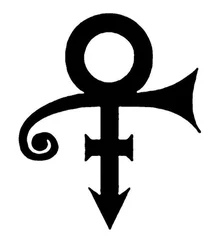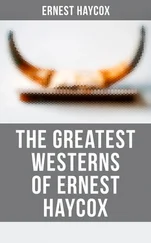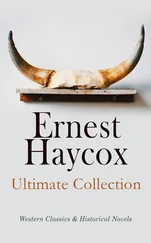“Art thou ready?” he inquired again, hunching over the control panel.
I hesitated a moment, then asked, “Actually, would you mind if we switched sides? I’m used to playing on the left.”
It was true. When Aech and I played in the Basement, I always took the ostrich side. Being on the right side during the first game had screwed up my rhythm a bit.
Acererak appeared to consider my request for a moment. Then he nodded. “Certainly,” he said. He stepped back from the cabinet and we switched sides. It suddenly occurred to me just how absurd this scene was: a guy wearing a suit of armor, standing next to an undead king, both hunched over the controls of a classic arcade game. It was the sort of surreal image you’d expect to see on the cover of an old issue of Heavy Metal or Dragon magazine.
Acererak slapped the Two Player button, and my eyes locked on the screen.
The next game started out badly for me too. My opponent’s movements were relentless and precise, and I spent the first few waves just trying to evade him. I was also distracted by the incessant click of his skeletal index finger as he tapped his Flap button.
I unclenched my jaw and cleared my mind, forcing myself not to think about where I was, who I was playing against, or what was at stake. I tried to imagine that I was back in the Basement, playing against Aech.
It worked. I slipped into the zone, and the tide began to turn in my favor. I began to find the flaws in the lich’s playing style, the holes in his programming. This was something I’d learned over the years, mastering hundreds of different videogames. There was always a trick to beating a computer-controlled opponent. At a game like this, a gifted human player could always triumph over the game’s AI, because software couldn’t improvise. It could either react randomly, or in a limited number of predetermined ways, based on a finite number of preprogrammed conditions. This was an axiom in videogames, and would be until humans invented true artificial intelligence.
Our second game came right down to the wire, but by the end of it, I’d spotted a pattern to the lich’s playing technique. By changing my ostrich’s direction at a certain moment, I could get him to slam his stork into one of the oncoming buzzards. By repeating this move, I was able to pick off his extra lives, one by one. I died several times myself in the process, but I finally took him down during the tenth wave, with no extra lives of my own to spare.
I stepped back from the machine and sighed with relief. I could feel rivulets of sweat running down my forehead and around the edge of my visor. I wiped at my face with the sleeve of my shirt, and my avatar mimicked this motion.
“Good game,” Acererak said. Then, to my surprise, he offered me his withered claw of a hand. I shook it, chuckling nervously as I did so.
“Yeah,” I replied. “Good game, man.” It occurred to me that, in a weird way, I was actually playing against Halliday. I quickly pushed the thought out of my head, afraid I might psych myself out.
Acererak once again produced two quarters and dropped them into the Joust machine. “This one is for all the marbles,” he said. “Art thou ready?”
I nodded. This time, I took the liberty of slapping the Two Player button myself.
Our final tie-breaking game lasted longer than the first two combined. During the final wave, so many buzzards filled the screen that it was hard to move without getting dusted by one of them. The lich and I faced off one final time, at the very top of the playing field, both of us incessantly hitting our Flap buttons while slamming our joysticks left and right. Acererak made a final, desperate move to avoid my charge and dropped a micrometer too low. His final mount died in a tiny pixelated explosion.
PLAYER TWO GAME OVER appeared on the screen, and the lich let out a long bloodcurdling howl of rage. He smashed an angry fist into the side of the Joust cabinet, shattering it into a million tiny pixels that scattered and bounced across the floor. Then he turned to face me. “Congratulations, Parzival,” he said, bowing low. “You played well.”
“Thank you, noble Acererak,” I replied, resisting the urge to jump up and down and shake my ass victoriously in his general direction. Instead, I solemnly returned his bow. As I did, the lich transformed into a tall human wizard dressed in flowing black robes. I recognized him immediately. It was Halliday’s avatar, Anorak.
I stared at him, utterly speechless. For years gunters had speculated that Anorak still roamed the OASIS, now as an autonomous NPC. Halliday’s ghost in the machine.
“Now,” the wizard said, speaking with Halliday’s familiar voice. “Your reward.”
The chamber filled with the sound of a full orchestra. Triumphant horns were quickly joined by a stirring string section. I recognized the music. It was the last track from John Williams’s original Star Wars score, used in the scene where Princess Leia gives Luke and Han their medals (and Chewbacca, as you may recall, gets the shaft).
As the music built to a crescendo, Anorak stretched out his right hand. There, resting in his open palm, was the Copper Key, the item for which millions of people had been searching for the past five years. As he handed it to me, the music faded out, and in the same instant, I heard a chime sound. I’d just gained fifty thousand experience points, enough to raise my avatar all the way up to tenth level.
“Farewell, Sir Parzival,” Anorak said. “I bid you good luck on your quest.” And before I could ask what I was supposed to do next, or where I could find the first gate, his avatar vanished in a flash of light, accompanied by a teleportation sound effect I knew was lifted from the old ’80s Dungeons & Dragons cartoon.
I found myself standing alone on the empty dais. I looked down at the Copper Key in my hand and felt overcome with wonder and elation. It looked just as it had in Anorak’s Invitation: a simple antique copper key, its oval-shaped bow embossed with the roman numeral “I.” I turned it over in my avatar’s hand, watching the torchlight play across the roman numeral, and that was when I spotted two small lines of text engraved into the metal. I tilted the key up to the light and read them aloud: “What you seek lies hidden in the trash on the deepest level of Daggorath.”
I didn’t even need to read it a second time. I instantly understood its meaning. I knew exactly where I needed to go and what I would have to do once I got there.
“Hidden in the trash” was a reference to the ancient TRS-80 line of computers made by Tandy and Radio Shack in the ’70s and ’80s. Computer users of that era had given the TRS-80 the derogatory nickname of “Trash 80.”
What you seek lies hidden in the trash .
Halliday’s first computer had been a TRS-80, with a whopping 16K of RAM. And I knew exactly where to find a replica of that computer in the OASIS. Every gunter did.
In the early days of the OASIS, Halliday had created a small planet named Middletown, named after his hometown in Ohio. The planet was the site of a meticulous re-creation of his hometown as it was in the late 1980s. That saying about how you can never go home again? Halliday had found a way. Middletown was one of his pet projects, and he’d spent years coding and refining it. And it was well known (to gunters, at least) that one of the most detailed and accurate parts of the Middletown simulation was the re-creation of Halliday’s boyhood home.
I’d never been able to visit it, but I’d seen hundreds of screenshots and vidcaps of the place. Inside Halliday’s bedroom was a replica of his first computer, a TRS-80 Color Computer 2. I was positive that was where he’d hidden the First Gate. And the second line of text inscribed on the Copper Key told me how to reach it:
Читать дальше
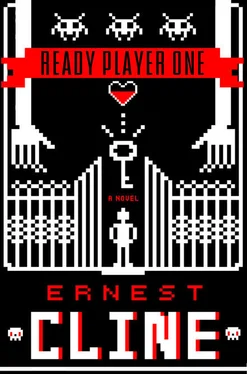
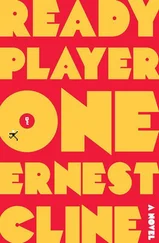


![Эрнест Клайн - Ready Player Two [calibre]](/books/438636/ernest-klajn-ready-player-two-calibre-thumb.webp)
